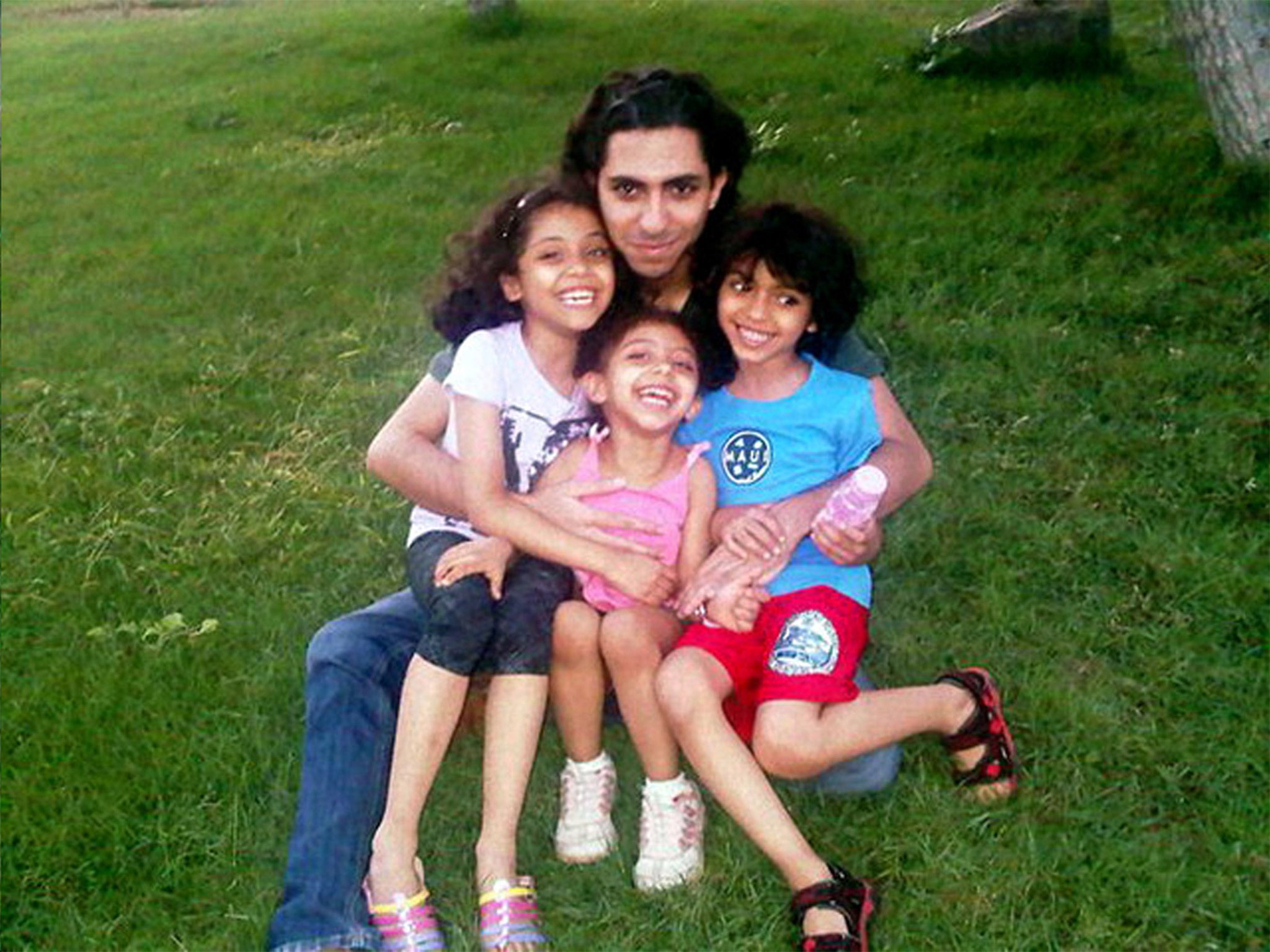UK ministers have started to defend Saudi Arabia's flogging of Raif Badawi – it's breathtaking
How medieval does a regime have to be before ministers pause to consider the relationship?

Your support helps us to tell the story
From reproductive rights to climate change to Big Tech, The Independent is on the ground when the story is developing. Whether it's investigating the financials of Elon Musk's pro-Trump PAC or producing our latest documentary, 'The A Word', which shines a light on the American women fighting for reproductive rights, we know how important it is to parse out the facts from the messaging.
At such a critical moment in US history, we need reporters on the ground. Your donation allows us to keep sending journalists to speak to both sides of the story.
The Independent is trusted by Americans across the entire political spectrum. And unlike many other quality news outlets, we choose not to lock Americans out of our reporting and analysis with paywalls. We believe quality journalism should be available to everyone, paid for by those who can afford it.
Your support makes all the difference.Three years ago today, Saudi Arabian police arrested Raif Badawi for the crime of running a website “that propagates liberal thought”. His blog had put the case for secularism in observations such as this: “States which are based on religion confine their people in the circle of faith and fear.”
As if to prove his point, a Sharia court hauled Badawi back into the fearful circle, sentencing him to 600 lashes and seven years in jail for “going beyond the realm of obedience”. Last year, deciding that he had been let off too lightly, a judge upped the punishment to 1,000 lashes and 10 years’ imprisonment plus a fine of one million riyal (about £170,000).
What does our government think of this? Asked about the flogging and jailing of Badawi, the Foreign Office minister Baroness Anelay said in the Lords last week: “We maintain our view that freedom of religion and belief and freedom of expression are core rights that lead to long-term stability and good governance.”
But? Yes, of course there was a but, and one to take the breath away: “My Lords, I think we have to recognise that the actions of the Saudi government in these respects have the support of the vast majority of the Saudi population.”
Do they? Last Friday I asked the Foreign Office how the minister could be so sure. No answer has yet been forthcoming. Perhaps the “vast majority” of Saudis are indeed fanatical sadists who rejoice to see liberal bloggers whipped. Or, then again, perhaps they aren’t. No one knows: this is an absolute monarchy, not a marginal in the West Midlands being polled by Lord Ashcroft.

Even if you were a Saudi who deplored the flogging, you wouldn’t say so publicly – especially when you saw what happened to a man who did. Badawi’s lawyer, Waleed Abu al-Khair, was given a 15-year jail sentence last July for criticising the judiciary and so “inflaming public opinion”. How the judges measured that inflammation was not revealed. Perhaps Baroness Anelay gave them the benefit of her psephological expertise.
Another of Abu al-Khair’s grave offences was “making international organisations hostile to the kingdom”. I’d say the kingdom is quite capable of doing that unaided. The AFP news agency reports that there have now been 100 beheadings in Saudi Arabia since the start of 2015 – “far exceeding last year’s tally and putting it on course for a new record”, as The Independent noted this week. It’s almost as if the House of Saud is showing off to Isis, the new kid on the block: “Publicly beheading apostates? Pah. We were doing that when you were in nappies.”
When Isis decapitates its prisoners you don’t hear Baroness Anelay qualify her condemnation by saying “we must recognise that these actions are supported by the vast majority of Isis”. Nor, for that matter, does she witter feebly about good governance.
But perhaps one day she will. It would seem grotesque to suggest that Britain might eventually recognise the Isis caliphate as a state, sell it arms, solicit its investment and then offer only the politest rebuke when innocent heads are sliced off. It is, however, no more grotesque than how we already conduct our official dealings with Saudi Arabia, another brutal theocracy that tolerates no dissent and has an automatic death sentence for apostasy – and which, like Isis, is hell-bent on spreading Wahhabi fanaticism far beyond its borders.
How medieval does a regime have to be before British ministers pause to consider whether it is one with which we can do business? So long as the regime in question remains our most lucrative export market for arms, the answer is: “My Lords, I think we have to recognise…”
Join our commenting forum
Join thought-provoking conversations, follow other Independent readers and see their replies
Comments